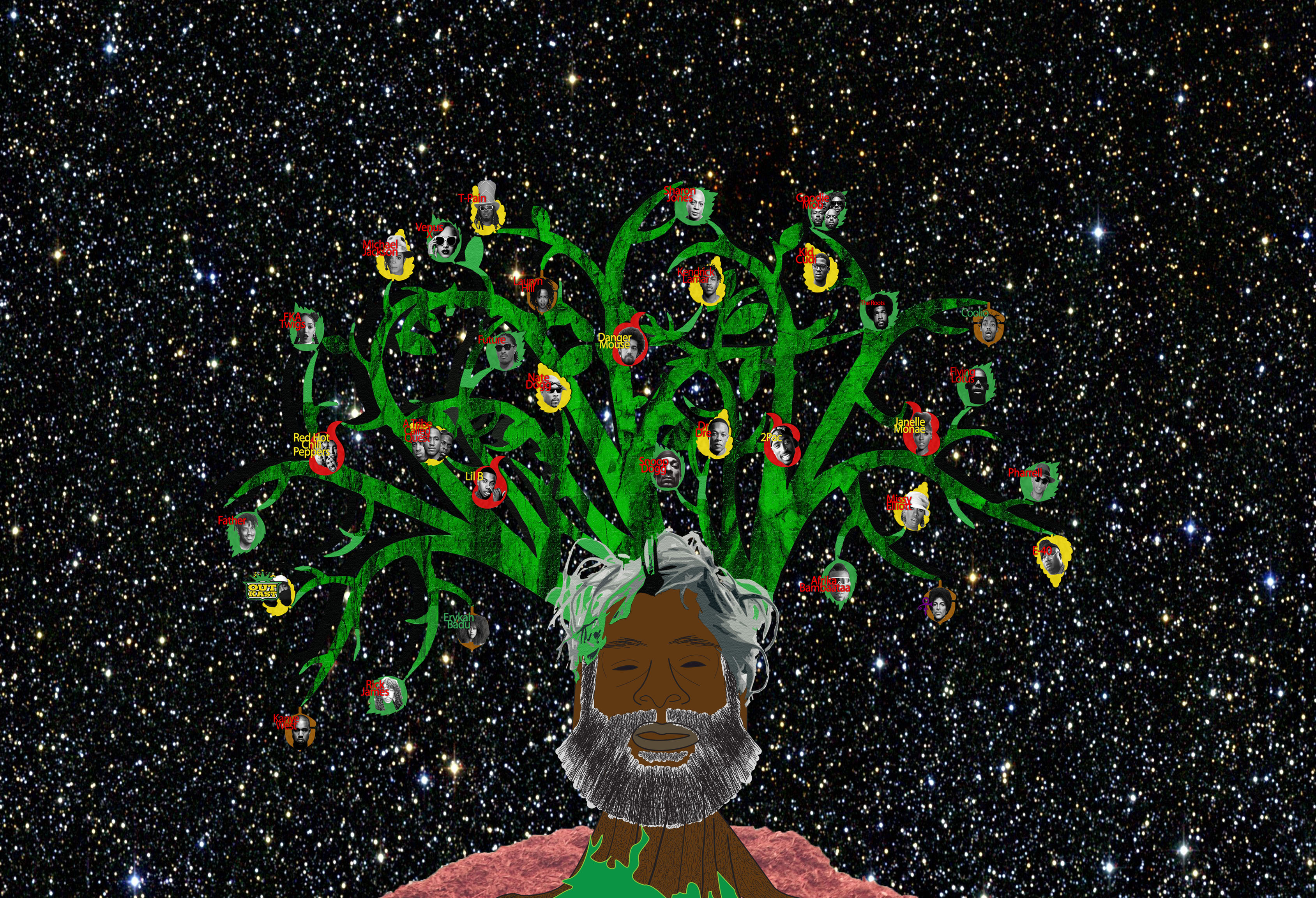Most people tend to get the words “inspiration” and “influence” confused. The former is the act of convincing others that they too can achieve the great heights that you’ve reached. Inspiration is the setting of a blueprint detailing how to climb to a certain plateau, and from there how to make that plateau yours alone. While inspiration is important in the canonization process of a future icon, influence is the quality that actually motivates one’s followers and drives their decision making. Influence is the coercive force behind the choice to take that first step in their idol’s path. Influence is the direct effect on the immediate interests and actions of the greater public. It’s when the summation of your exploits is so inspiring that people can’t help but to want to emulate you and strive to follow in your footsteps. Whether it be the manner of your dress, how you approach your craft, or your general outlook on life, others adopt these characteristics and apply them to their own existences. There have been numerous examples of both types of artists in music. While the inspirational are great in number and continue to grow as the years pass, the truly influential are much harder to come by and leave their mark for years, even decades, after. And throughout our lifetimes there have been few creatives as influential as George Clinton.
Clinton’s fingerprints are present on almost every worthwhile artist’s sound since the late 1970s. His musical journey is one of the most interesting and wide-ranging of any of his peers. Having originally been a member of a doo wop band and Motown staff songwriter in the early 60’s, it became clear over time that he needed to change lanes in order to stand out. He took time to explore new sounds, not realizing how his exploits would help father and redirect genres of music. With (a lot) of LSD supplementing his already healthy imagination, Clinton began to bring the world a sonic pattern that would become more and more important as the years passed.
Interestingly enough, Clinton did not play any instruments himself, but he had the musical vision and knowhow required to arrange and create the incredible music that he did. He’d assemble the right musicians for the piece he was trying to construct, not just for their technical ability, but for style, panache, and a certain weirdness too. Clinton was famous for giving the most abstract directions imaginable and he needed musicians who could interpret them. This directorial and compositional style gave his band members guidelines while allowing room for some interpretation, a masterstroke that paid off in cohesive yet unpredictable sounds that would become his signature and be the foundation for some of modern music’s most unique hits. Songs like Atomic Dog, Maggot Brain, Not Just Knee Deep, and Mothership Connection spawned their own sub genres and gave artists that came after him the blueprint for how to achieve their own distinct sound.
Everything about Clinton’s music from the sonic qualities to the composition style has been adopted by his devotees from almost all genres creating a sprawling network of peers, some of which who have nothing in common but their reverence for the work of Funkadelic and Parliament. He’s worked extensively with a number of these artists, on his own as well as their projects helping to add credibility and a more experienced perspective that made his younger collaborators better and more adventurous practitioners after the experience.
The full extent of Clinton’s reach was wider than many may realize. He shifted perspectives through vehicles outside of his craft, an indicator that his genius went beyond the musical realm. His deeply developed ideological and aesthetic values made the next generation think differently about what forms their output and means of expression could take. His early promotion of Afrofuturistic ideas and beliefs helped expand the understanding of what black art was capable of. The aesthetics and philosophies of this movement are similar to many of those Clinton lived by and inspired a host of later artists, many of whom may have never been introduced to the lifestyle’s canon were it not for him. His anti-establishment ideals were frequently on display in his music in a comical but equally fashion, his critiques of the government, racism, and classist social structures would later become a central theme of genres in many mediums, including rap and punk. A number of authors, directors, designers, and other creatives have been guided by Clinton’s doctrine. Many of our favorite compositions across all mediums would have been impossible without the example he set, yet another prime example of his impact.
A certain amount of bravery is required when putting your thoughts out into the world, especially when your delivery is unfamiliar to most of your audience. But when the bravery is built up enough and acted upon, the results can be more extraordinary than imaginable. George Clinton’s career is the perfect example of the beautiful things that can be born when you search for your own voice instead of appropriating another’s and music wouldn’t be what it is today without his pursuits and triumphs. His creative legacy will live on forever, most of all because he went about creating one worth sustaining. As the man himself once said:
Good thoughts bring forth good fruit
Bullshit thoughts rot your meat
Think right, and you can fly
The kingdom of heaven is within
Free your mind, and your ass will follow

